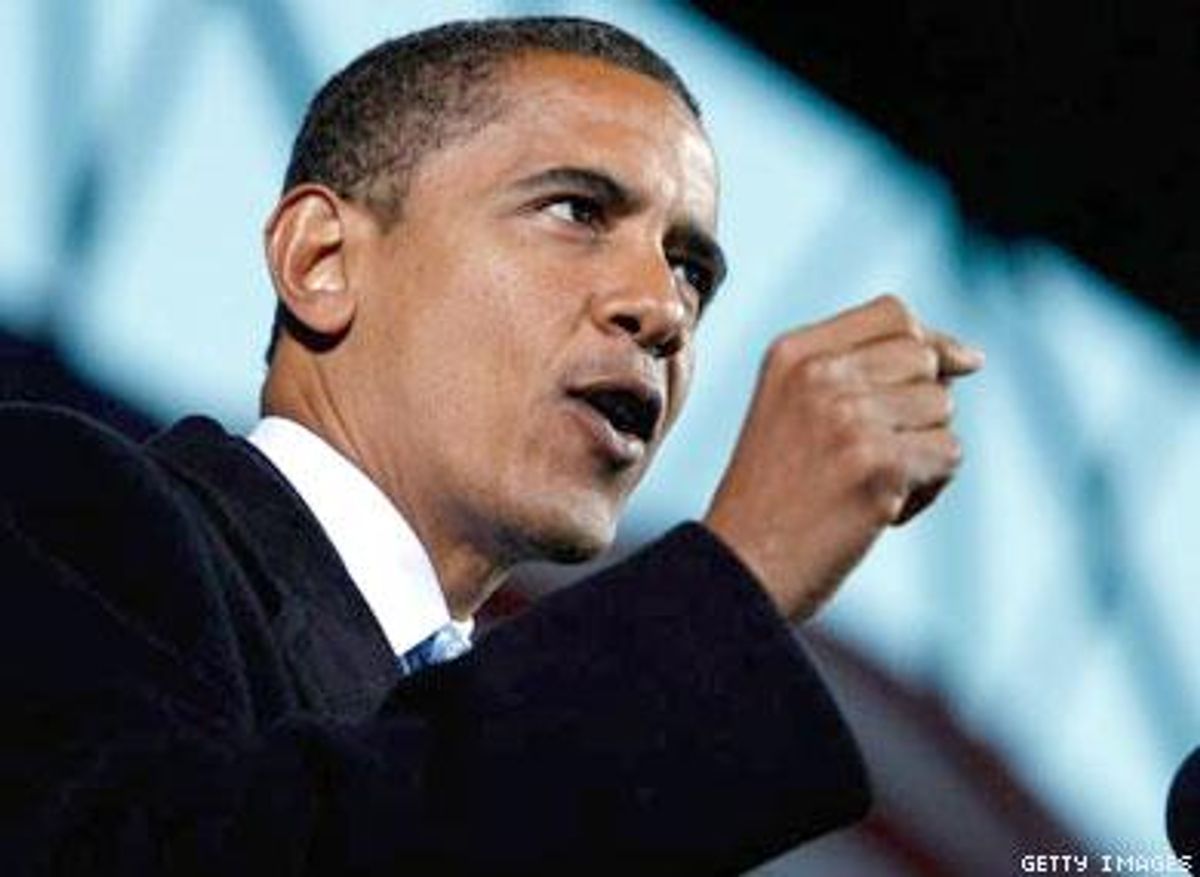Sen.
Barack Obama's campaign held a conference call Thursday
intended to highlight his policy prescriptions for combating
the HIV/AIDS epidemic -- including increased
funding for research, care, and prevention as well as
developing a national HIV/AIDS strategy within the
first year of his administration.
Surrogates for
the campaign tried to pound home distinctions between
an Obama-Biden administration's approach to the disease
and a McCain-Palin administration's.
"One of
the most important differences is going to be leadership on
public health issues that are facing America, in particular
the ongoing HIV/AIDS epidemic," congresswoman
Diana DeGette, vice chair of the House Committee on
Energy and Commerce, said.
DeGette noted
that while Obama's health care plan requires health
insurance companies to cover everyone regardless of
preexisting conditions, Sen. John McCain's does
not, because insurers would be allowed to move into
states that don't guarantee such coverage.
"As
everyone knows, this is critical to the HIV/AIDS
community," she said.
Sandra Thurman,
former director of the White House Office of National
AIDS Policy under President Clinton, stressed the importance
of developing a national AIDS strategy.
"As a
former director of the Office of National AIDS Policy, I
can't imagine anything more important than having a
national AIDS strategy, the likes of which we have
never had in the history of the epidemic for over a
quarter of a century," she said.
Thurman, who
joined the call from Kenya, stressed the fact that Ryan
White CARE Act, which provides federal funding to local
programs and services for people living with HIV/AIDS,
has been underfunded even as the nation continues to
log 50,000 new HIV infections a year and AIDS has
become the number 1 cause of death for African-American
women between the ages of 15 and 44.
"We have
an epidemic in the United States which, in many ways, has
not slowed down," she said, adding, "We
haven't had an increase in support and funding that's
commensurate with the challenges that we're facing in
communities that already have serious issues to deal
with."
Ryan White has
essentially been flat-funded since the year 2000. Though
representatives from the Obama campaign promised increases,
they did not commit to a dollar amount. "We
want to make sure we work with Congress to come up
with the right number as we go forward," said Neera
Tanden, the Obama campaign's domestic policy
director.
Tanden added that
increased funding would help limit the extent to which
rural areas with an emerging epidemic have to compete for
money with urban areas that already have a large
population of persons living with AIDS. "We
don't need to have this divisive strategy of pitting one
area against another. We should add additional
funding," she said.
Congresswoman
DeGette noted that McCain, during two different debates,
has suggested enacting a "spending freeze" on
nearly all governmental programs in order to curb
spending and reduce the deficit.
"If you
cut the Ryan White Act, you'd be cutting from a program
that's already underfunded," she said.
Another point
surrogates emphasized was Obama's focus on using a
"science-based" approach to fighting the
epidemic rather than relying on abstinence-only
education to decrease infection rates.
"With all
of the billions of dollars that have been given to HIV/AIDS
prevention around the world," DeGette said of the
Bush administration's international efforts,
"most of that money has been given to, in the
past, religious organizations that will not give condoms
out. Now that just isn't going to work."

















































































